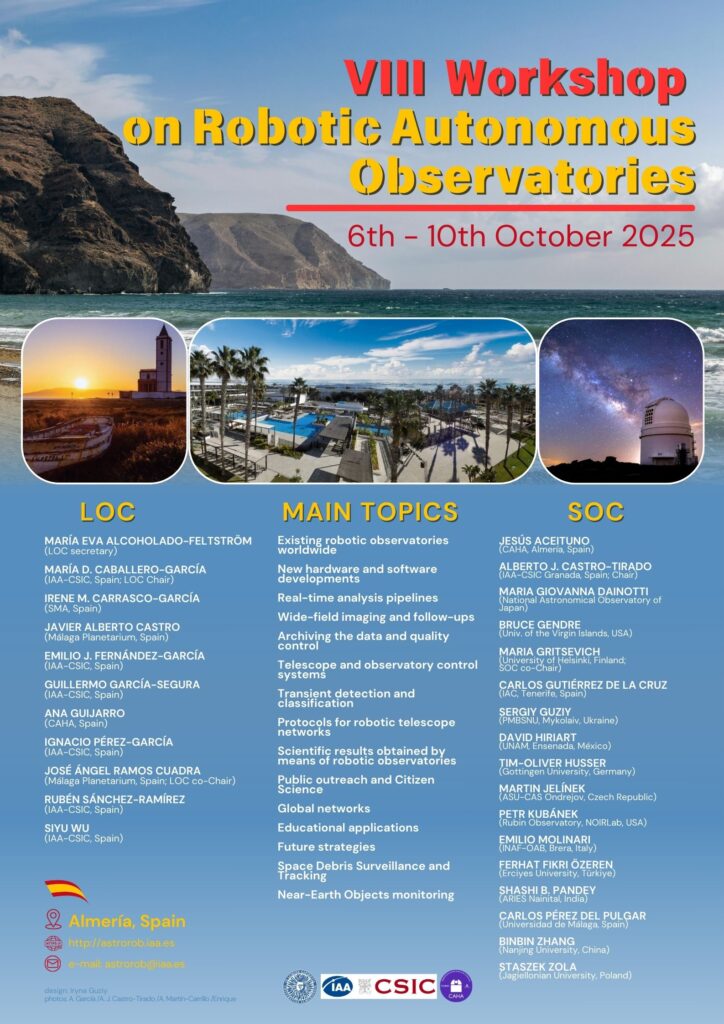
Overview
Sixteen years after the inaugural workshop in Málaga, robotic and autonomous astronomical observatories have achieved remarkable advancements. The global number of automated facilities has grown substantially, along with their capabilities in robotization, autonomy, and networking. These developments, driven by the search for electromagnetic counterparts to gravitational waves (such as the groundbreaking detection in 2017), have profoundly influenced diverse areas of astrophysics and beyond, including:
Fireball detection
Minor planet studies
Exoplanet searches
Monitoring variable stars in the Galaxy
Studying active galactic nuclei
Supernova detection and monitoring
Rapid follow-up of high-energy transients like gamma-ray bursts
Electromagnetic counterparts to neutrino and gravitational waves
The workshop will also highlight the increasing importance of space debris surveillance and tracking, the observation of Near-Earth Objects, the role of robotic observatories in public outreach and education, and their contributions to open science.
The Scientific Organizing Committee aims to deliver a dynamic program addressing scientific, technical, educational, and outreach themes.
We encourage researchers, engineers, educators, and enthusiasts working in these fields to join us at AstroRob2025. The success of this workshop series has been largely due to the active participation, insightful presentations, and engaging discussions contributed by its attendees. Your involvement is key to making the forthcoming workshop
as fruitful and inspiring as previous editions.
Topics
- Existing robotic observatories worldwide
- New hardware and software developments
- Real-time analysis pipelines
- Wide-field imaging and follow-ups
- Archiving the data and quality control
- Telescope and observatory control systems
- Transient detection and classification
- Protocols for robotic telescope networks
- Scientific results obtained by means of robotic observatories (from Solar System objects to high-energy transients in our Galaxy, gamma-ray bursts, neutrino sources and gravitational waves)
- Public Outreach and Citizen Science
- Global Networks
- Education applications
- Future strategies
- Space Debris Tracking and surveillance
- Near-Earth Objects observations
When
From 6 Oct to 10 Oct, 2025
Where
Hotel Barceló Cabo de Gata. El Toyo, Almería, Spain
Just 10 min away from Almería Airport and 2 hr from Málaga International Airport. A shuttle bus will be provided between Málaga Airport and the conference hotel.